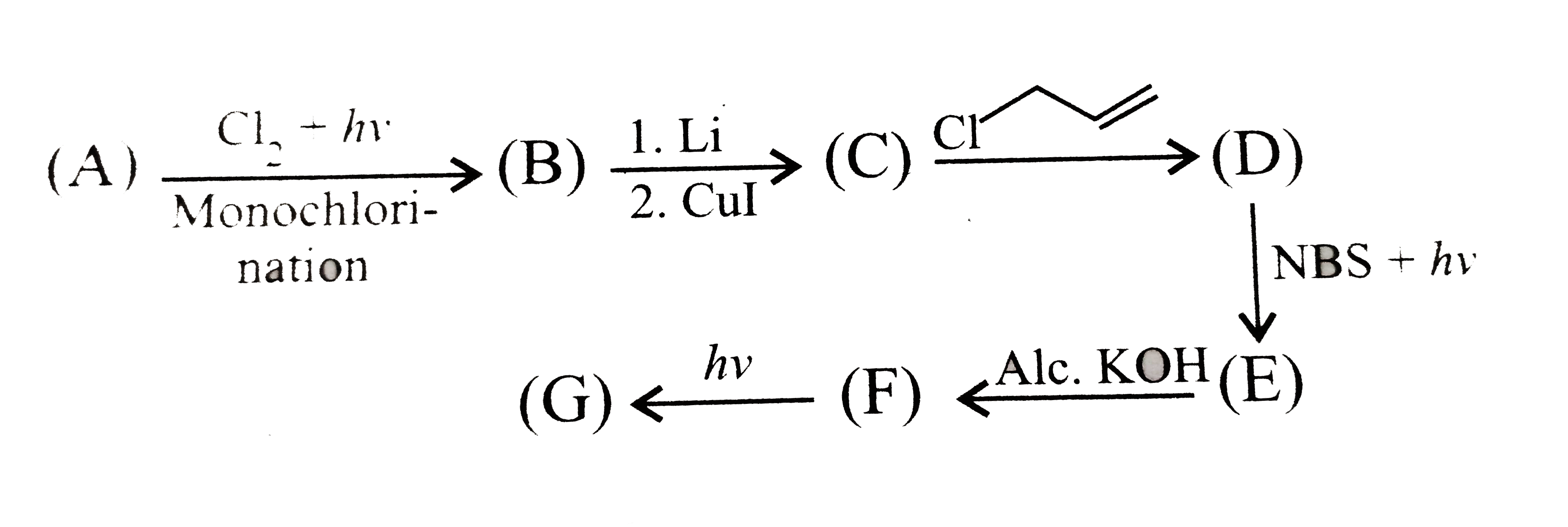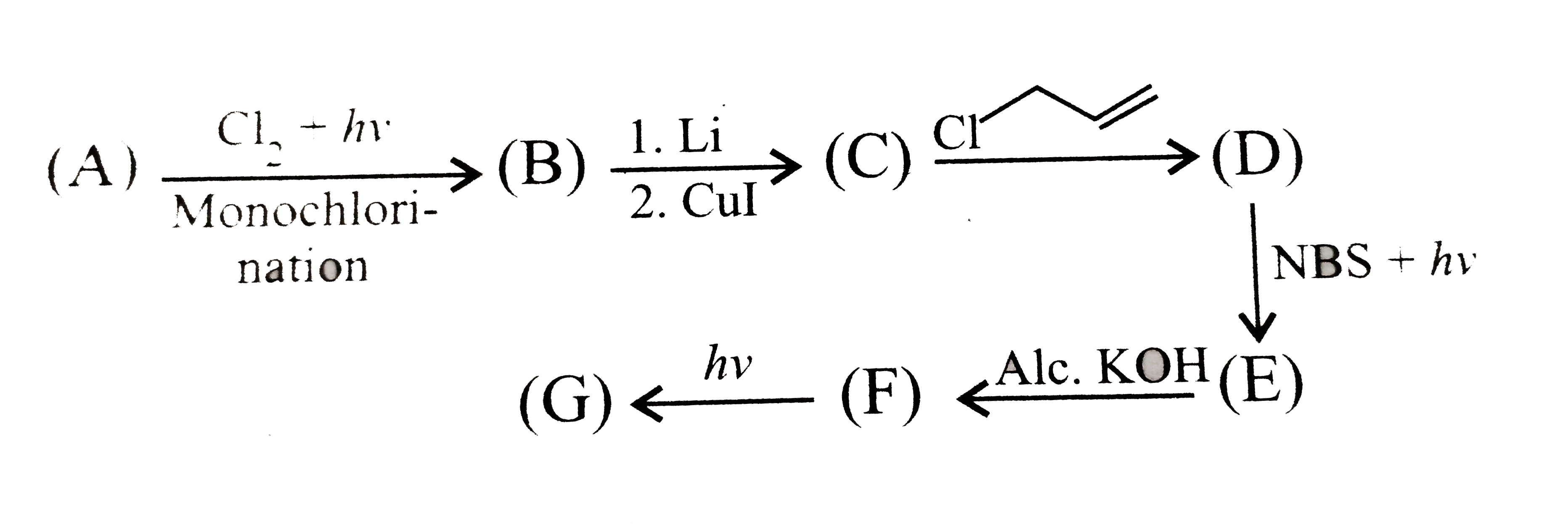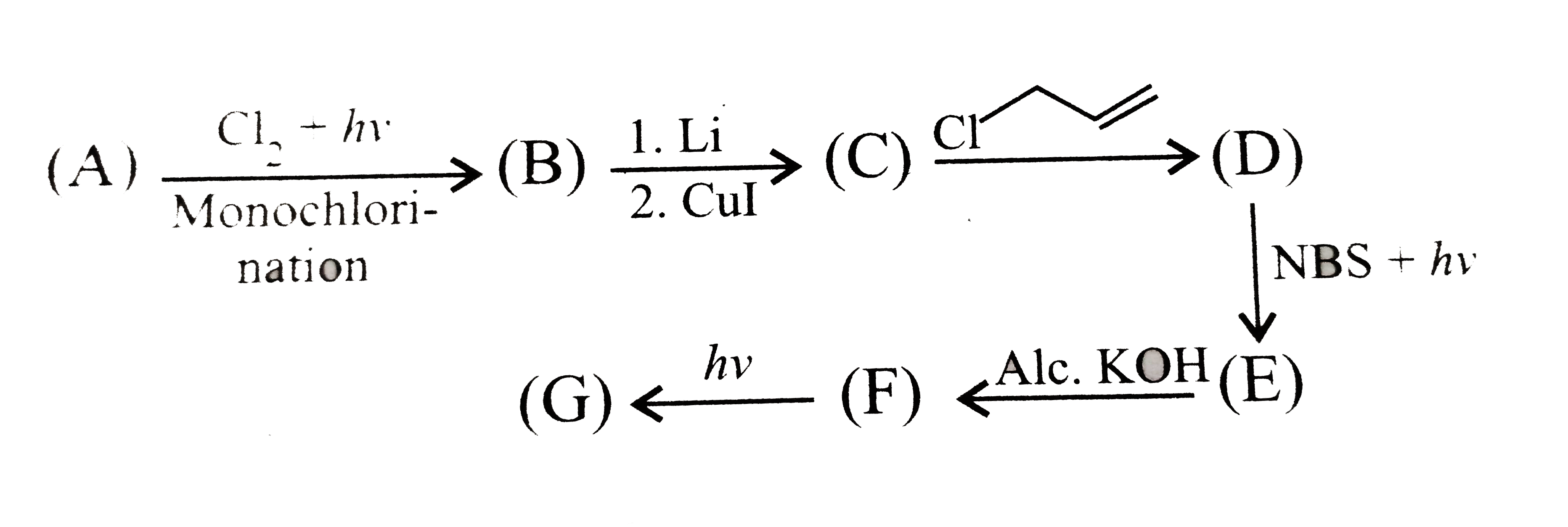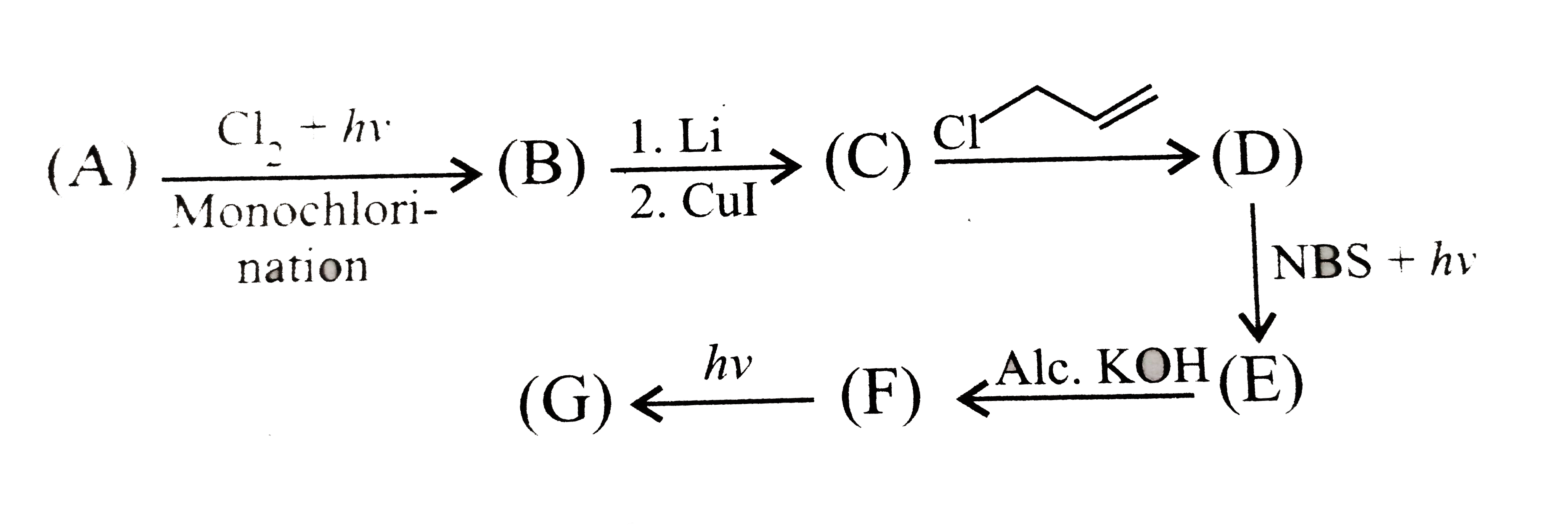10 " mL of " a gaseous organic compound containing C, H and O only was mixed with 100 " mL of " O2 and exploded under condition which allowed the H2O formed to condense. The volume of the gas after explosion was 90 mL. On treatment with KOH solution, a further contraction of 20 mL in volume was observed. The vapour density of the compound is 23. All volume measurements were made under the same condition.
Q.The volume of unreacted O2 is
20 mL
50 mL
70 mL
90 mL
The correct Answer is:C
To solve the problem step by step, we will analyze the information given and apply stoichiometric principles.
Step 1: Understand the initial conditions
We have:
- Volume of the gaseous organic compound (C, H, O) = 10 mL
- Volume of O₂ mixed = 100 mL
- Total volume after explosion = 90 mL
Step 2: Determine the volume of gases after the reaction
After the explosion, the volume of gas remaining is 90 mL. This volume consists of unreacted O₂ and the products of the reaction, which include CO₂ and possibly some unreacted organic compound.
Step 3: Identify the volume of water formed
Since the problem states that the water formed condensed, we can assume that it does not contribute to the gas volume after the explosion.
Step 4: Calculate the volume of CO₂ formed
The problem mentions that after treatment with KOH, there is a further contraction of 20 mL. KOH absorbs CO₂, so this contraction indicates the volume of CO₂ produced during the reaction.
Thus, the volume of CO₂ formed = 20 mL.
Step 5: Determine the volume of unreacted O₂
From the total volume of gas after the explosion (90 mL), we can calculate the volume of unreacted O₂:
- Volume of gas after explosion = Volume of unreacted O₂ + Volume of CO₂
- 90 mL = Volume of unreacted O₂ + 20 mL (CO₂)
Rearranging gives:
- Volume of unreacted O₂ = 90 mL - 20 mL = 70 mL
Final Answer
The volume of unreacted O₂ is 70 mL.
---
We have:
- Volume of the gaseous organic compound (C, H, O) = 10 mL
- Volume of O₂ mixed = 100 mL
- Total volume after explosion = 90 mL
After the explosion, the volume of gas remaining is 90 mL. This volume consists of unreacted O₂ and the products of the reaction, which include CO₂ and possibly some unreacted organic compound.
Since the problem states that the water formed condensed, we can assume that it does not contribute to the gas volume after the explosion.
The problem mentions that after treatment with KOH, there is a further contraction of 20 mL. KOH absorbs CO₂, so this contraction indicates the volume of CO₂ produced during the reaction.
From the total volume of gas after the explosion (90 mL), we can calculate the volume of unreacted O₂:
- Volume of gas after explosion = Volume of unreacted O₂ + Volume of CO₂
- 90 mL = Volume of unreacted O₂ + 20 mL (CO₂)
- Volume of unreacted O₂ = 90 mL - 20 mL = 70 mL
The volume of unreacted O₂ is 70 mL.
Topper's Solved these Questions
- STOICHIOMETRYBook:CENGAGE CHEMISTRY ENGLISHChapter:STOICHIOMETRYExercise:Exercises Multiple Correct
Explore 30 Videos
- STOICHIOMETRYBook:CENGAGE CHEMISTRY ENGLISHChapter:STOICHIOMETRYExercise:Exercises Single Correct
Explore 85 Videos
- STOICHIOMETRYBook:CENGAGE CHEMISTRY ENGLISHChapter:STOICHIOMETRYExercise:Exercises Subjective
Explore 31 Videos
- STATES OF MATTERBook:CENGAGE CHEMISTRY ENGLISHChapter:STATES OF MATTERExercise:Exercises (Ture False)
Explore 25 Videos
- THERMODYNAMICSBook:CENGAGE CHEMISTRY ENGLISHChapter:THERMODYNAMICSExercise:Archives (Subjective)
Explore 23 Videos
Similar Questions
10 " mL of " a gaseous organic compound containing C, H and O only was mixed with 100 " mL of " O2 and exploded under condition which allowed the H2O formed to condense. The volume of the gas after explosion was 90 mL. On treatment with KOH solution, a further contraction of 20 mL in volume was observed. The vapour density of the compound is 23. All volume measurements were made under the same condition.
Q.The volume of CO2 is
View Solution10 mL of a gaseous organic compound containing C,H and O only was mixed with 100 mL of O2 and exploded under condition which allowed the H2O formed to condense. The volume of the gas after explosion was 90 mL. On treatment with KOH solution, a further contraction of 20 mL in volume was observed. The vapour density of the compound is 23. All volume measurements were made under the same condition.
The molecular formula of the compound is
View Solution10 " mL of " a gaseous organic compound containing C, H and O only,mixed with 100 " mL of " O2 and exploded under conditionwhich allowed the H2O formed to condense.Volume of the gas after explosion was 90 mL. On treatment with KOH solution,further contraction of 20 mL in volume was observed. The vapour density of the compound is 23. All volume measurements were made under the same condition.
Q.The molecular formula of the compound is
View Solution16 " mL of " a gaseous compound CnH3nOm was mixed with 60 " mL of " O2 and sparked. The gas mixture on cooling occupied 44 mL. After treatment with NaOH solution, the volume of gas remaining was 12 mL. Deduce the formula of the compound.
View SolutionA 20 mL mixture of ethane, ethylene, and CO2 is heated with O2. After explosion, there was a contraction of 28 mL and after treatment with KOH, there was a further contraction of 30 mL. What is the composition of the mixture?
View SolutionTwenty millilitres of a gaseous hydrocarbon (A) was exploded with excess of oxygen in eudiometer tube. On cooling, the volume was reduced by 50ml. On further treatement with KOH solution, there was a further contraction of 40 ml.

Compound (C) is:
View SolutionTwenty millilitres of a gaseous hydrocarbon (A) was exploded with excess of oxygen in eudiometer tube. On cooling, the volume was reduced by 50ml. On further treatement with KOH solution, there was a further contraction of 40 ml.

Compound (G) is:
View SolutionTwenty millilitres of a gaseous hydrocarbon (A) was exploded with excess of oxygen in eudiometer tube. On cooling, the volume was reduced by 50ml. On further treatement with KOH solution, there was a further contraction of 40 ml.

Compound (D) is:
View SolutionTwenty millilitres of a gaseous hydrocarbon (A) was exploded with excess of oxygen in eudiometer tube. On cooling, the volume was reduced by 50ml. On further treatement with KOH solution, there was a further contraction of 40 ml.

Compound (E) is:
View SolutionThe volume of oxygen gas liberated at NTP from 30 mL of 20 (VH2O2), solution is
View Solution